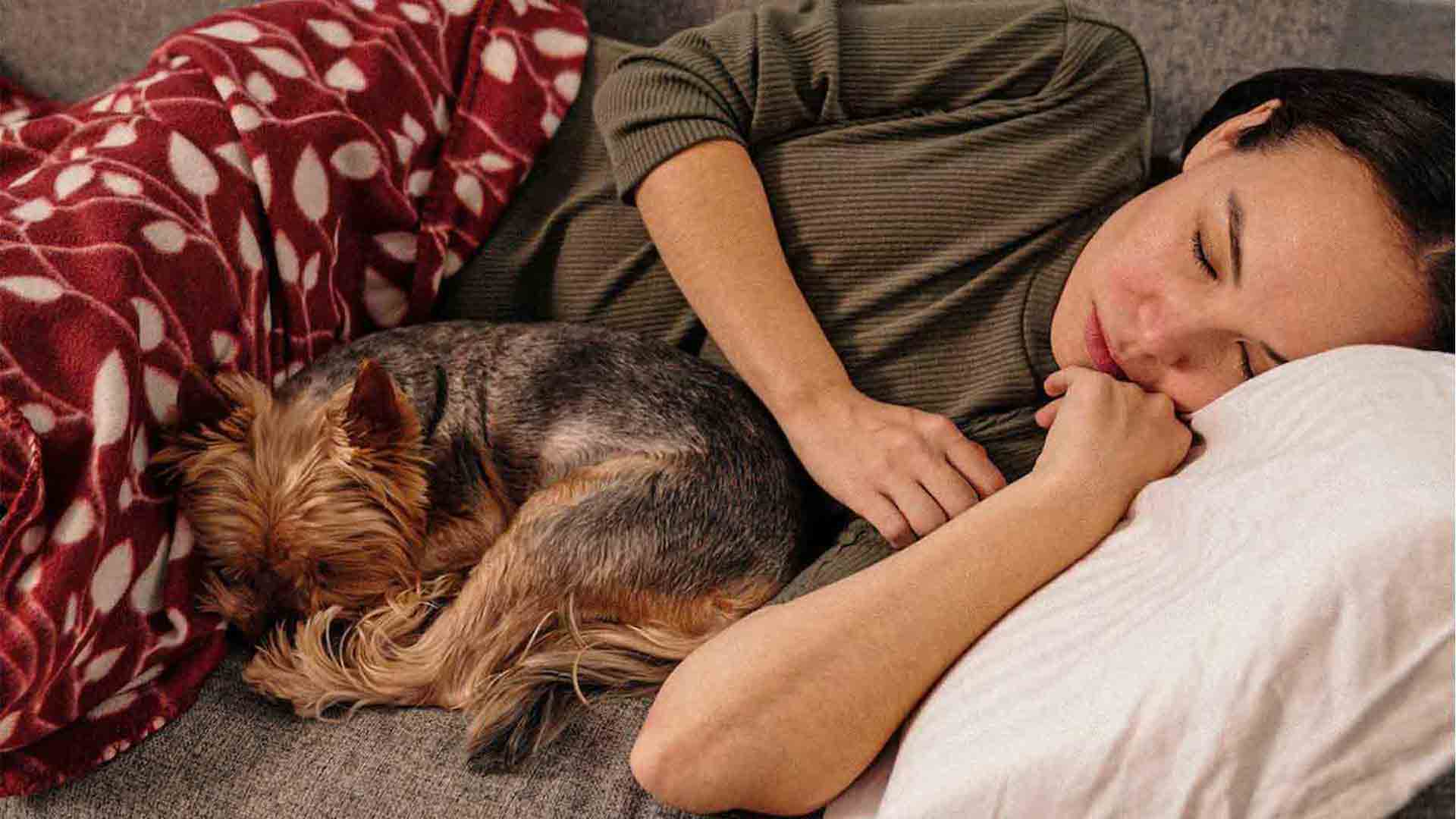A tickle in the back of your throat, heavy eyelids, bundling up one minute and ripping off layers the next, the urge to curl up on the couch; the early signs of a cold or other virus are familiar to many of us at the start of fall and winter. If you’re lucky, you might feel better after just a full night’s rest, otherwise, your body will be begging for sleep the next few days to fully recover. But just how important is a good night’s rest when it comes to recovering from illness? And how can you make the most of those zZz’s come sniffle season? In this article, we will be covering all things sleep and immunity (Pssst…we’re dropping sleep facts that are so good, you’ll think you’re dreaming.)
What the research says
Why sleep is important for your immune health
Your immune system is a bit of an underrated hero when it comes to maintaining your health. It works hard throughout the day to defend your body from harmful organisms, but the twilight hours are when it’s able to ramp up its efforts without being interrupted by the other demands you place on your body (i.e. eating or moving). Fighting infections and anything foreign that’s trying to invade your body requires a lot of energy, so while your body is resting and getting zZz’s, it’s able to take advantage of the fewer demands from the rest of your body to power its activities.
Getting enough and quality shut-eye impacts all corners of your life, including your immune system. And while you might validate your late night TikTok scrolling as part of your self-care routine, if you’re sacrificing sleep, you’re not doing your body any favors. In fact, if you’re logging less than 4 hours of slumber, you’re more likely to catch a cold compared to those getting at least 7 hours, according to research.1
The reason being: as you sleep, your immune system releases white blood cells (WBC) and cytokines (proteins secreted by your immune system), these act like messengers to ward off infections, inflammation and illnesses. Poor sleep causes a drop in both WBC and cytokines so your immune system may not be able to function at its best, leaving you more vulnerable to becoming sick.2 Additionally, too many nights of insufficient sleep can add up and lead to increased inflammation, which is often a root cause of a host of illnesses. Sleep allows your body to restore itself and keep inflammation at a healthy level.
Sleep improves your body’s adaptive immunity (aka your immune system’s memory)
Your body has two levels of immunity: innate and adaptive.
Innate immunity is your first line of defense – it’ll look for anything that doesn’t belong in your body and destroy it. Adaptive immunity is a type of learned immunity – when your body encounters a foreign pathogen, it keeps records of the best way to fight it. So, if it comes across the invader again, it’s able to quickly recognize the problem and strategically respond to it. This is one of reasons why you only get some illnesses once (i.e. measles or chickenpox).
Sleep has shown to improve this learned, adaptive memory. Though more research is needed to better understand why this process takes place during sleep, it’s believed that sleep strengthens the immune system’s ability to remember how to recognize and react to harmful invaders.3
How much sleep do you need to boost your immune system?
By now you probably already know to aim for at least 7 hours per night, and this continues to be true to best support your immune system. If you’re recovering from the common cold or another illness though, you may need more so your immune system can work its magic. If quality sleep is a nightly struggle, it might be helpful to squeeze in short naps earlier in the afternoon. Naps too late in the day or that are too long can throw off your sleep schedule even more, so it’s best to keep them around 20 minutes.
Tips to improve sleep
If you’re tired of counting sheep, here’s a few suggestions that may help you catch those zzz’s:
- Try to stay off your phone directly before bed and even consider putting it in a separate room at night so that it’s not a distraction. The main goal is to reduce stress, wind down and create a space and mindset for rest.
- Try stretching before bed to help your body relax.
- Decaffeinated tea may help calm and soothe your body.
- Sleep supplements may also help promote a restful state and ensure good sleep.
Quality sleep is so important and implementing a few simple steps can make a huge difference in your overall health and immunity! For more tips, read this blog on: 6 simple ways to improve sleep, naturally.
About Gabby
Gabby is a nutritionist with a master’s degree in strategic communications. She loves using her nutrition-fluency with storytelling to encourage positive change. Before Persona, she worked at a mental health clinic helping clients manage stress, anxiety and other mental health issues through diet.
Do you have questions about supplements? Reach out to one of our experts, or take Persona’s free nutrition assessment, and learn exactly what you need to take your wellness to the next level.

